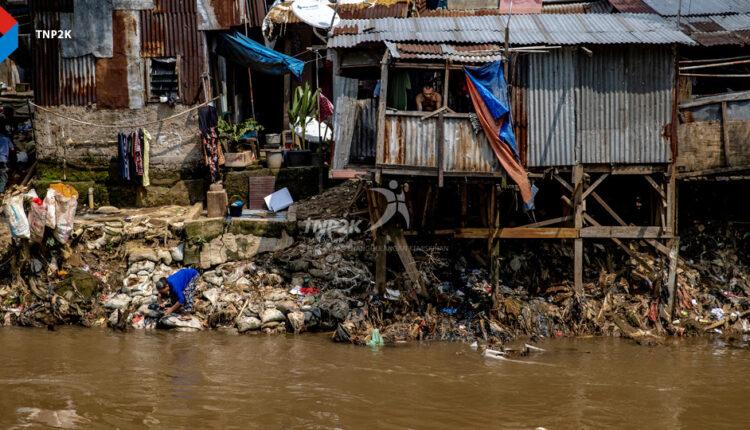President Jokowi Successfully Reduces Extreme Poverty, Optimistic Indonesia Emas
Jakarta — President Joko Widodo’s leadership in the economic sector has succeeded in bringing significant changes in handling extreme poverty in Indonesia. Minister of Finance, Sri Mulyani Indrawati, said that amidst global economic challenges, Indonesia has succeeded in maintaining economic stability and reducing extreme poverty to near zero by 2024.
This stable economic growth cannot be separated from the infrastructure development policy that Jokowi continues to intensify as well as comprehensive social protection programs.
Sri Mulyani, in a Working Meeting with Committee IV of the DPD RI in September 2024, stated that Indonesia’s economic growth in 2023 would reach 5.05 percent, amidst global economic turmoil.
“We can still maintain growth momentum amidst global economic turmoil,” said Sri Mulyani.
He added that extreme poverty rates that had risen due to the COVID-19 pandemic had fallen again to below pre-pandemic levels.
In 2019, the extreme poverty rate was at 9.4 percent, then rose to 10.14 percent at the peak of the pandemic, but has now been suppressed to 9.03 percent.
This achievement cannot be separated from Jokowi’s economic policy which focuses on equitable development and social protection.
The World Bank also acknowledged Indonesia’s success in reducing extreme poverty, where consumption among lower-class people increased by 5.5 percent during Jokowi’s leadership. This shows that the economic policies implemented by the government have had a real impact on the welfare of the poor and vulnerable.
Massive infrastructure development during Jokowi’s administration has been one of the main factors driving the decline in extreme poverty. By building roads, bridges, ports, and airports in various regions of Indonesia, especially in remote areas, the government has succeeded in opening up people’s access to markets, education, and health services. This has not only increased economic mobility, but also opened up new job opportunities for local communities.
In addition, social protection programs such as the Family Hope Program (PKH) and Non-Cash Food Assistance (BPNT) continue to expand their scope.
Sri Mulyani emphasized that these programs are the backbone of efforts to reduce extreme poverty in Indonesia.
“High economic growth has led to improvements in our development index,” he said.
These programs help increase the purchasing power of the poor, maintain economic stability at the household level, and protect them from the negative impacts of global economic changes.
Even though the world is facing high inflation, rising global interest rates, and market uncertainty due to protectionism, Indonesia has been able to maintain its economic growth.
Sri Mulyani noted that a 500 basis point interest rate hike in the United States and a strengthening US dollar were unable to shake the Indonesian economy, which continued to grow above 5 percent. At the same time, global economic growth was only around 3 percent, indicating the strength of the Indonesian economy in facing the global crisis.
The fiscal and monetary policies taken by the Indonesian government have proven effective in maintaining national economic stability. Under Jokowi’s leadership, the government has implemented a flexible and responsive approach to global economic changes, allowing Indonesia to survive and even grow amidst global economic pressures.
This success is also inseparable from the synergy between the central and regional governments. Jokowi always emphasizes the importance of cross-sector cooperation in overcoming poverty problems and improving people’s welfare. Infrastructure development programs carried out by the central government often involve regional governments to ensure that the development truly provides benefits to the community.
